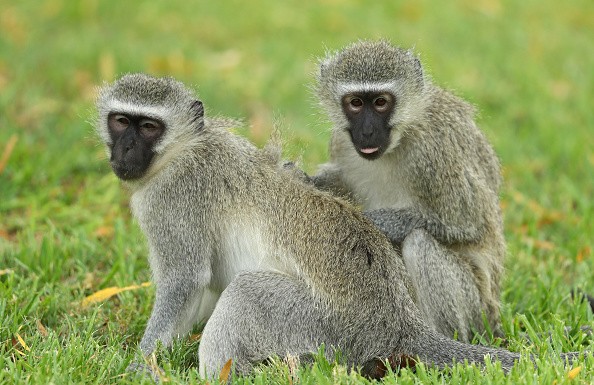A little friendly help can come in handy when you see yourself faced with a foe, and recent research released in the journal Royal Society of Open Science has discovered that some monkeys call for help too.

The Study of Wild Putty-Nosed Monkeys
Taking a look at a population of putty-nosed monkeys (Cercopithecus nictitans), the scientists discovered that females would make use of specific calls to target just the males, who would rush in like "hired guns" to protect the females from predators.
The research team, in partnership with the Wildlife Conservation Society's (WCS) Congo Program and the Nouabalé-Ndoki Foundation, viewed 19 different groups of wild putty-nosed monkeys for the study. Each was discovered within Mbeli Bai, a designated region for research that stays within the forests in Nouabalé-Ndoki National Park, Northern Republic of Congo.
Groups making use of specific warning calls is natural among primates, who have learned to answer warning calls and respond appropriately, sometimes even answering calls of other species (captive orangutans have even accustomed to a new method of communicating not seen in the wild).
The Alarm Call
Among the forest guenons (monkeys from the genus Cercopithecus, both putty-nosed monkeys) males have some of the loudest alarms but they are not certainly more specific than female calls, as just one sound can be used for many purposes.
The scientists on this study had in mind to test if differences in sex came into alarm call strategies experimentally, so they secured the help of a "leopard," a moving model that was persuasive enough to make the putty-nosed monkeys believe they are been attacked.
They unleashed the leopard on male and female groups differently, to notice how the other monkeys, of different sex, react to their calls. Interestingly, when female monkeys sighted the leopard and sounded the alarm, the males would come running but the same result didn't occur when it was the males sounding the alarm.
Sex-Dependent Replies
Before the recruited males discovered what was happening, they would make noise while approaching which the researchers propose could help in establishing the value of the male within the group. The call of the male would then change once they sighted the leopard to a specific call of anti-predator, and it was only at this point that the females would quit vocalizing.
The different plans could be tied to the fact that males that involved less in such events which are defensive may get chased out of the group earlier than those who take the lead, a motivation that may have driven the sex-dependent replies to predators and warning calls.

Kek
The specific call males made when coming close to the leopard was a new one to the scientists, who called it "kek", which to their understanding has never before been announced in observational research of putty-nosed monkeys.
There are not too many reasons why this might be, but it could imply that kek is a population-specific call. If this is true, it would be an indicator for vocal production study among these monkeys, a large scoop for science as it's widely trusted that this type of learning isn't found within the animal kingdom.
Related Article : Monkeys Display Behavior Similar to Autism, Study Says
For more news, updates about monkeys and similar topics don't forget to follow Nature World News!
© 2025 NatureWorldNews.com All rights reserved. Do not reproduce without permission.





